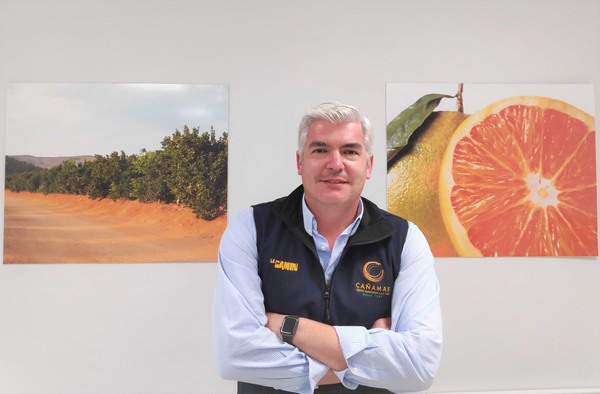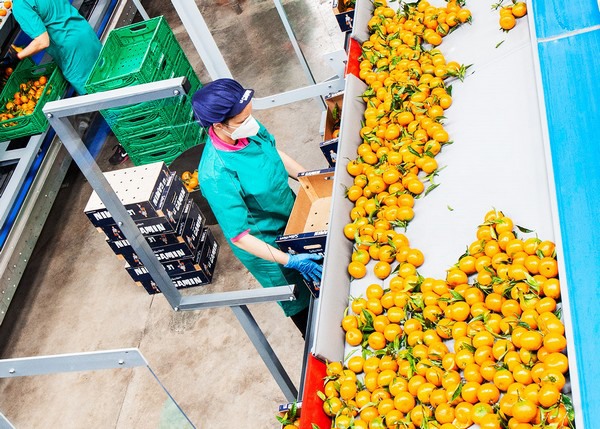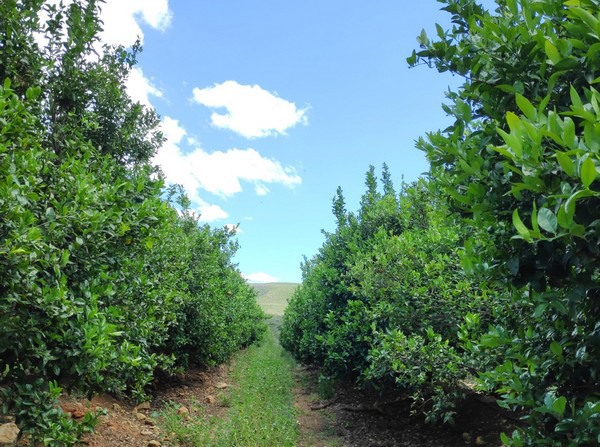The first part of the citrus campaign has been characterized by the great volume available, although with small sizes and a lot of discards in the case of the Navelina and Clemenules due to the impact of a too dry summer and a moist autumn, with rains and dew.

“This second part of the season is radically different from the first (that of the Clemenules and Navelina) in terms of sizes and use of the fruit. We have reduced losses both in terms of quality and size, using more than 90% of the production. This means that we will still manage to maintain fresh sales at the same level as in recent years. Unless a catastrophe happens, we are facing a campaign with highly tasty fruit and very usable calibers,” said Quico Peiró, Operations Director of the Cañamás Group, which plans to sell around 120,000 tons this campaign.
The demand from customers and consumers was good during the months of September and October, and this trend continued until the first fortnight of November, when “consumption slowed down due, on the one hand, to the high temperatures recorded on the European continent at that time and, on the other hand, to an accumulation of the supply of varieties such as the Oronules, Clemenules, Clemenvilla, Salustiana and Navelina in the markets,” says Quico Peiró.

The impact of the second wave of the coronavirus in Europe has also caused fluctuations in consumption due to the constant changes in the restrictions of each country. In general, the consumption of fruits and vegetables grew by 10% in Spain in November compared to the same month of 2019 (according to the latest official data from the Food Consumption Panel of the Ministry of Agriculture, Fisheries and Food), since we spent more time at home and became more aware of healthy eating habits.
It should be recalled that the prices at origin of citrus fruits have risen significantly in the last week. “Prices simply have to be adjusted to reality, because we have just finished a first part of the campaign in which prices left much to be desired as a result of an excess supply in a market with limited demand. Let's hope that in this second part the demand and the supply will be more in balance and that the market will be more dynamic,” says Quico Peiró.
One of the aspects that make Europe, and especially France, the main destination for this company is the proximity. “This adds value to our citrus fruits and allows us to market products with a high taste quality; products that retain all their qualities from field to fork. And thanks to our distribution center in the Saint-Charles market in Perpignan we maintain a direct relationship with the French market and a point of connection with the rest of Europe. In this way, we have more room to adapt to changes in customer demands.”

“Despite the fact that Europe is our main customer, we are already developing new lines of business and offering our citrus and kakis in overseas markets. At the moment, all factors are favorable to prevent quality problems in long-distance exports. The quality of the fruit is exceptional in terms of taste, and the weather has so far been good. Therefore, if the product is handled properly, we shouldn't have to deal with problems of any kind,” says Quico Peiró.
More competition from third countries, especially Egypt
"The reality of our sector is that, in every sense, we are a European producer, with everything that this entails when it comes to respect to human rights, use of pesticides, use of plastics, adaptation of infrastructures for packaging and food safety. We also have the best product in the world in terms of taste. All this results in European customers clearly preferring Spanish citrus.”
“Now, it is true that Egypt is developing its citrus sector, but it is doing so, on the one hand, to the detriment of its Navel; a variety in which it is hardly representative anymore; and on the other hand, thanks to the increase in the consumption of citrus fruits in the European continent, since Spain has continued to export more than 3.6 million tons per year in recent years. What is clear is that, as long as we all work with the same legislative framework, and we must respect the same phytosanitary restrictions, we will be providing our clients with a great product adapted to their needs, and that is healthy competition," says Quico Peiro.
For more information:
Maria Canet
Departamento Comercial
Cañamás Hermanos, S.A.
Camí Aigua Blanca, SN ·
46780 Oliva. Valencia. Spain
T: +34 962 852 000
[email protected]
www.canamas.com










